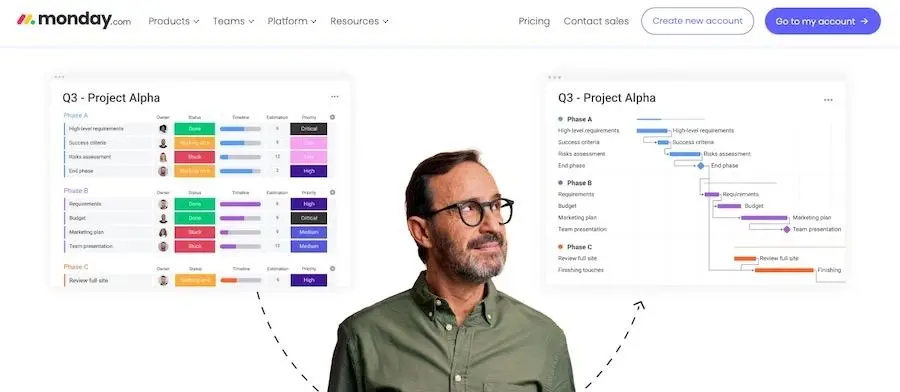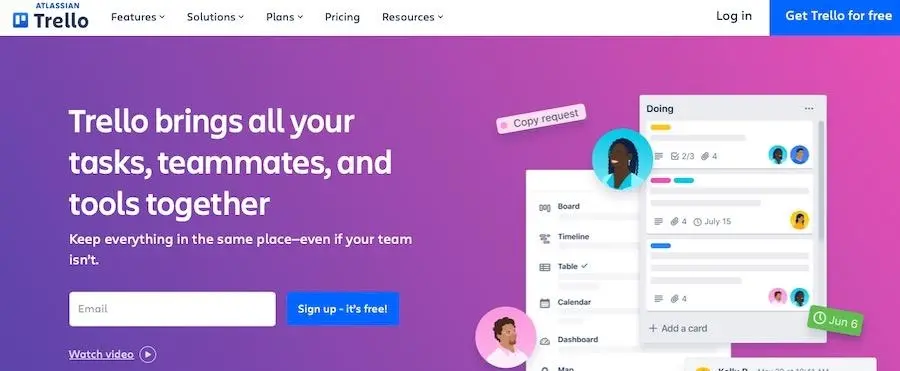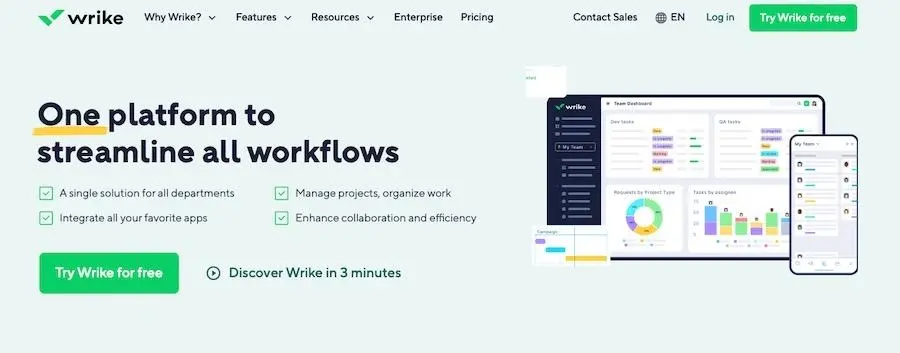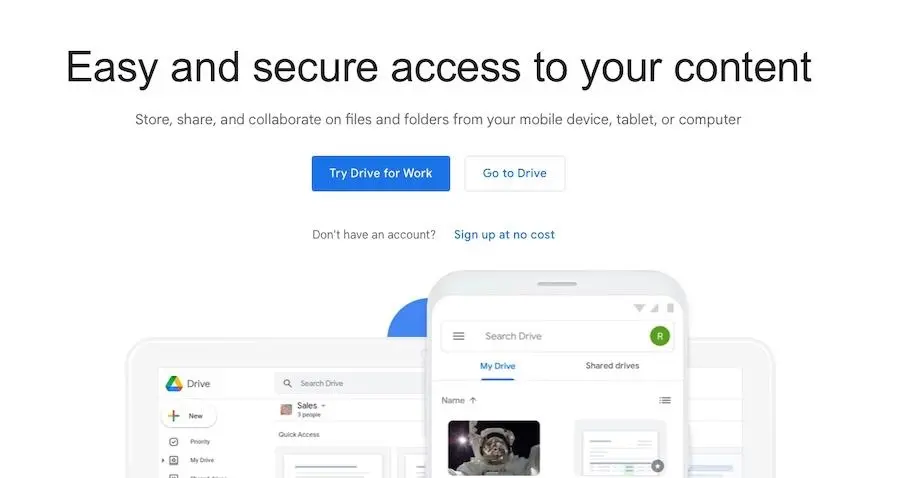Whether you're freelancing from a beach in Bali or collaborating with a team scattered across time zones, remote work is the new normal.
But let's be real - working remotely can be challenging, especially for web developers managing complex projects, client needs, and even reseller hosting tasks that require seamless, real-time collaboration.
So, how do you keep the team spirit alive and the project on track? Remote collaboration tools, of course!
This article will explore the must-have tools that make remote collaboration simpler for web developers and enable them to thrive in today’s distributed work environment.
The Importance of Remote Collaboration in Web Development
Collaboration is often the most important part of a successful web development project. It fosters creativity, speeds up problem-solving, and enhances code quality. Plus, two heads (or more) are always better than one, right?
But only if everyone on the team is on the same page and can communicate in an effective (and efficient) manner.
The Rise of Remote Work
The COVID-19 pandemic gave remote work a significant push, making it more mainstream than ever. And guess what? Many companies are sticking with it. So, adapting to remote collaboration tools isn't just a temporary fix -- it's a long-term strategy.
But what sorts of tools should web developers use to tackle remote collaborations? Let's find out.
Must-Have Remote Collaboration Tools for Web Developers
The right set of tools can help keep everyone on the team in sync and make collaboration simpler, no matter where they are. Here’s what your remote development team needs:
Version Control Systems (VCS)
Version control systems (VCS) are essential for remote web development teams. They provide a secure environment in which the entire team can work on a project without worrying about losing their progress.
The most popular VCS is Git, and GitHub (which uses Git) is widely used by developers worldwide. With it, you can track code changes, create branches, and merge back end versions into a single version.
Communication Tools
Communication is key when it comes to remote collaborations. The right messaging app or platform can help everyone stay on the same page and ensure all questions are answered promptly.
Slack is one of the most popular team communication tools out there, as it offers persistent chat room capabilities, file sharing, and direct messaging. But there are plenty of other options to choose from, including Microsoft Teams and Discord.
Project Management Tools
Project management tools provide structure to the development process. They’re especially useful for remote teams because they help you stay organized and ensure that everyone is on track with their tasks.
Trello is one of the most popular project management tools out there. It’s easy to use and provides a visual overview of tasks, deadlines, and progress. Other options include Jira and Asana.
Code Editor Tools
Code editor tools provide a platform for web developers to edit code in real-time without affecting (or overriding) each other’s changes.
Sublime Text and Visual Studio Code are two of the most popular code editors out there. They provide useful features like syntax highlighting, debugging tools, and customizable designs. Both also have plugins available to extend their functionalities even further.
Top Remote Collaboration Tools for Web Developers
Now that we have the categories sorted out, here are some of the best tools to help with remote collaborations:
1. Monday.com

Monday.com is a robust project management tool with a focus on customization. It offers document sharing, co-editing, multiple views, and customizable dashboards. It also integrates seamlessly with popular third-party tools like Slack and Microsoft Teams.
Pros and Cons of Monday.com
Cons
Pricing
Monday.com offers a range of pricing plans, from a Free plan for up to two users to custom-priced Enterprise plans. The Free plan includes three boards and more than 200 templates, while the Pro plan offers advanced features like time tracking and a chart view.
2. Trello

Trello is known for its user-friendly drag-and-drop Kanban boards. It offers features like comments, @mentions, and file sharing, making it a solid choice for web developers.
Pros and Cons of Trello
Pros
Cons
Pricing
Trello offers a free version that's great for small teams or individual developers. For more advanced features, they have paid plans starting at around $10 per user per month.
3. Wrike

Wrike is another heavyweight in the collaboration arena, offering file sharing, live document editing, and hundreds of integrations. It's a versatile tool that can adapt to various project management methodologies, be it Scrum, Agile, or Waterfall.
Pros and Cons of Wrike
Pros
Cons
Pricing
Wrike offers a free plan for small teams and its paid plans start at $9.80 per user/month and offer additional features like Gantt charts, custom fields, and advanced integrations.
4. Smartsheet

Smartsheet takes a different approach by focusing on spreadsheet-based project management. It offers collaborative versatility and is particularly useful for teams that are comfortable working in a spreadsheet environment.
Pros and Cons of Smartsheet
Pros
Pricing
Smartsheet offers a range of pricing options, including a free plan, with Pro plans starting at $7 per user/month. The pricing is flexible and can be tailored to the needs of different team sizes and requirements.
5. GitHub

GitHub is not just a repository for your code; it's a powerful collaboration tool. It offers code review, pull requests, and multiple assignee features, making it an essential tool for software development teams.
Pros and Cons of GitHub
Pros
Pricing
GitHub offers a free plan for public repositories. For private repositories and additional collaboration features, pricing starts at $4 per user per month.
6. Google Drive

Don't underestimate the power of Google Drive. It's more than just a cloud storage solution; it's a collaboration hub. You can create, share, and collaborate on documents, spreadsheets, and presentations in real time.
Pros and Cons of Google Drive
Cons
Pricing
Google Drive offers 15 GB of free storage. Paid plans start at $1.99 per month for 100 GB.
What to Look for in a Collaboration Tool
Choosing the right collaboration tool is not a one-size-fits-all situation. Here are some criteria to consider:
1. Budget: Know how much you're willing to spend.
2. Team Size: Some tools are better suited for small teams, while others are designed for large enterprises.
3. Features: Make a list of must-have features that are crucial for your project.
4. Technical Support: Check the kind of support the tool offers. Is it 24/7? Is there a knowledge base?
5. Security: Make sure the tool can protect your data and offers secure collaboration features.
6. Integrations: Look for tools that integrate with third-party applications you already use, such as Slack or Google Drive.
7. Accessibility: Ensure the tool is easy to access across multiple devices and platforms.
8. Usability: Consider how intuitive and user-friendly the interface is.
Making sure you choose the right collaboration tool can save your team time and money in the long run. With these criteria in mind, you'll be sure to find a tool that fits your project's needs.
Conclusion
Remote collaboration is more than a trend in 2025—it's a necessity. With the right tools, remote work can be not only manageable but truly effective.
From project management platforms like Monday.com to code repositories like GitHub, there's a tool for every need and budget. And remember, if you're working in web development, having a reliable web hosting provider is essential. Verpex Hosting, for instance, offers powerful cloud and WordPress hosting solutions and reseller hosting options, enabling you to scale your business by offering hosting services to clients.
What are your go-to tools for remote collaboration? Feel free to share your thoughts and experiences.
Frequently Asked Questions
Can free HTML editors be used for professional web development?
Yes, free HTML editors like Visual Studio Code and Atom offer advanced features and are suitable for professional web development.
Do I need web developer skills to use Shopify or WooCommerce?
No. Both platforms welcome beginners, but you might get more out of WooCommerce’s extensions if you’ve got some previous experience.
How does Verpex Web Development Hosting cater to developers' needs?
Verpex Web Development Hosting caters specifically to developers' needs by offering support for a wide range of programming languages, pre-installed development tools, and scalable resources to accommodate the growth of your project.
Does Verpex provide any tutorials or resources for web developers using their hosting service?
Verpex offers a comprehensive knowledge base and blog featuring tutorials, resources, and best practices to help web developers make the most of their hosting services.
Can I offer web hosting as part of my web development services remotely?
Yes, by utilizing reseller hosting, web developers can bundle hosting services with their development offerings. This allows developers to manage their clients’ hosting needs directly, which can improve service continuity and make it easier to collaborate remotely by centralizing all aspects of the project—from development to hosting—in one place.
What should web developers look for in a reseller hosting plan to support remote work?
Web developers should seek reseller hosting plans that offer robust scalability, reliable customer support, and extensive customization options. Tools for managing multiple domains, easy scalability to adjust resources as client needs grow, and 24/7 technical support are key features that can help developers effectively manage their client portfolios from anywhere in the world.

Brenda Barron is a freelance writer and editor living in southern California. With over a decade of experience crafting prose for businesses of all sizes, she has a solid understanding of what it takes to capture a reader's attention.
View all posts by Brenda Barron




















